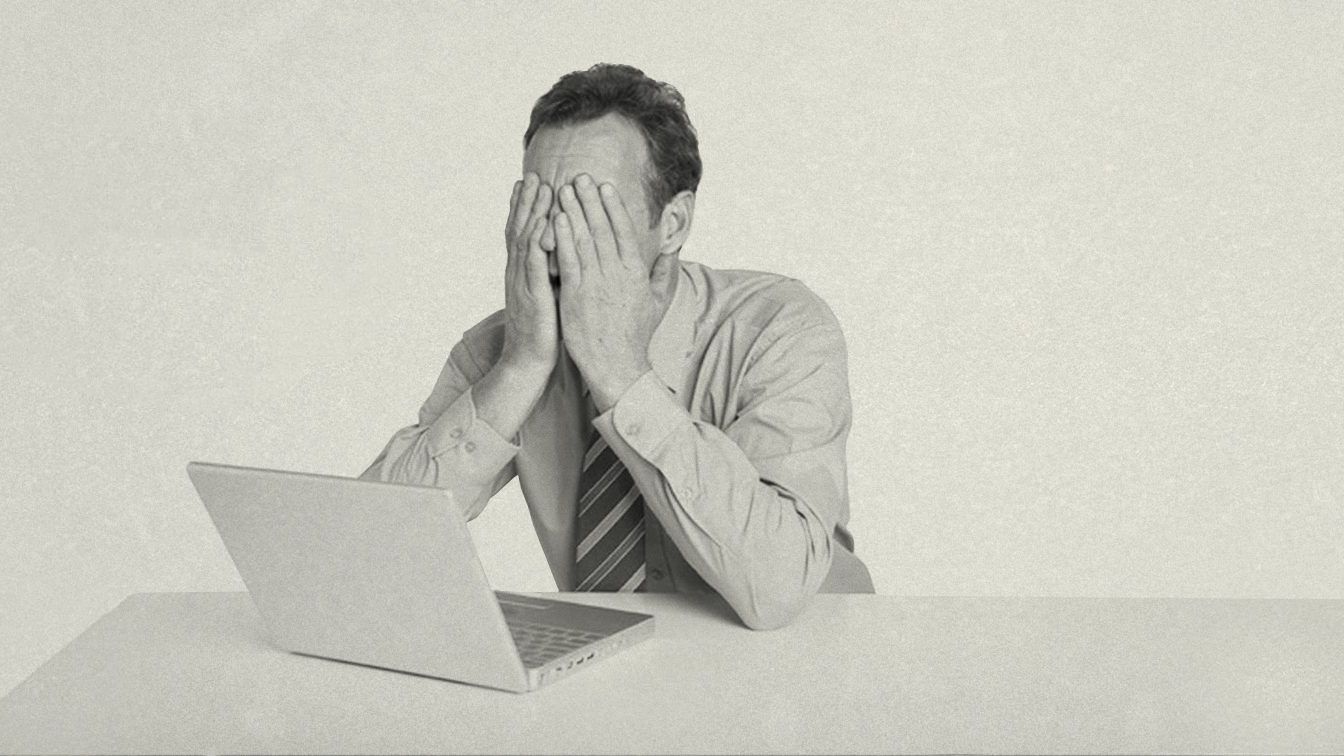

What to do when you’ve been laid off
Fired. Canned. Axed. Call it what you want; there's nothing fun about being laid off. We ask a certified life coach how to deal with professional heartbreak.
Words: Jonathan Wells
What a time for it to happen, eh? You find yourself slap-bang in the middle of simply the worst year in forever — and you’re laid off. You’re shown the door. You’re axed. Canned. Let go. Fired.
Doesn’t feel good, does it? God knows, we’ve all been there. But there’s only so much you can do at the moment. With businesses haemorrhaging money, and more people being furloughed than you can shake a P45 at, being made redundant is just one of the horrible byproducts of this horrible pandemic.
But, although it will undoubtedly feel bleak when you get the news, there’s light at the end of lockdown. We asked Dave Knight, certified life coach and the host of Sunday Settler podcast, for his top tips for getting through such a tough time. With over a decade spent working in the mental health sector, the London-based mental health and wellness expert has worked for various trusts and practices around the UK — and now he’s here to help you.
Allow yourself to feel upset
Of course you have to let yourself feel sad. You’ve been laid-off. You wouldn’t be human if you didn’t feel at least a little pang of despair. But it doesn’t have to be a negative sadness. Allow Dave Knight to explain.
“We’re meant to feel sad and upset,” says the life coach, “and we shouldn’t punish ourselves for feeling that way. And, in the aftermath of the bad news, we’re likely to be thinking a lot. Perhaps putting pressure on ourselves to fix it, feel better and normal again. The challenge quite often is dealing with feelings that we don’t want or are scared of. But whatever we are feeling will calm down and pass.”
Don’t blame yourself
Why me? What could I have done better? Did I deserve this? These are the sort of destructive thoughts that may be pinging around in your mind — but dwelling on any of them won’t do you any good. As Knight offers, there’s not always a reason for everything.
“You absolutely should not blame yourself for what has happened,” he explains. “We have no control on the outside world – only in our self-created realities do we think we have control over outside events. So, if we blame ourselves when outside curveballs and challenges appear, we’ll never be free of stress, anxiety and depression. Live that way, and you’ll end up carrying unnecessary pressure for things you can’t control.”
Take time and stock
So you can feel blue — as long as you don’t blame yourself. What next? The daunting part about starting a new, uncertain chapter in your life is not knowing where it may lead you. But this, Knight says, can wait.
“For now,” he offers, “the best thing to do is nothing. Without realising, you may well have been living a life brimming-to-capacity, and perhaps it is time to take stock and review. When we get bad news, we’re likely to respond with an unclear and busy mind; doing less, however, will help us make the best next step when the time is right. Commit time to yourself, invest in yourself and review what you want and don’t want. You’ve got to this point in your life already, so trust yourself to keep moving forward.”
Consider what skills you do have
If you don’t take time to press pause on your life, Knight adds, you might end up rushing down a rash road, or unadvisedly starting a new career. “Being open to personal and professional development is always a good quality to have,” he says, “as long as we don’t confuse the two — as that can take us down a path that we don’t really want to go down.”
“Retraining could always be a viable strategy, but only if it works for you, your family and other commitments,” he offers. “I would always consider what skills, experience and competencies that I already have – as a way of recognising and affirming what I have as a foundation. I’ve found that, more often than not, you’ve already got what you need.”
Don’t let money drive you
Of course, money will be a concern. It always is. But now more than ever, with no certain next pay check on the horizon, you’ll likely be worrying. But should you dive straight into a safe, lower paying job — or, if possible, should you hold out for a similarly well-paying position?
“Only if it fits right in the context of what is important to you,” advises Knight. “Our morale and the way we define ourselves should not depend on the money we earn and, if taking a pay cut means we can spend more time with our family or on other things that we want to be doing, then I personally would always be all for it. Prior to the job search, though, you should review your ‘wants’ and ‘don’t wants’ in life.”
Try not to look back
So you’ve taken stock, had a rest and considered where you want your life to go from here. You should be fine. But there’ll be a niggling thought in your head — one trying to make you revisit and return to the reason you were laid off in the first place. Don’t listen to it, says Knight, and never look back.
“If you’re feeling sad and upset; perhaps having not accepted the news or wanting to challenge the decision in some way, then it’s not good timing to have a conversation with your old workplace, because it may enhance that feeling. And, once you’re in a space where you’ve accepted, it might well be that you’re just ready to move forward with your life and not look back. We can’t change it, we only have control over what we do now in the present.”
Looking to restart your life? These six small changes will make you more productive…
Become a Gentleman’s Journal member. Find out more here.


